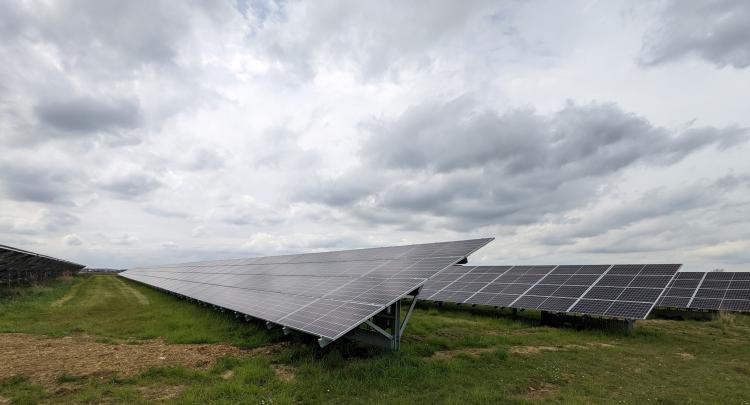£4.9m grant helps propel Cranfield University to reach its net zero target

Project overview
Cranfield University, which specialises in science, engineering, technology and management has been awarded £4.9 million for a wide range of environmental improvements centred on its district heating system.
With the university’s 24-year-old inefficient boiler heading towards its end-of-life usage, part of the funding has gone towards replacing it with an air source heat pump, which will also help reduce the running of the gas-fired combined heat and power unit.
This project is the latest venture in a long-standing partnership between Cranfield University and Salix Finance which began in 2009 and will see upgrades to the building management system and LED lighting installed. Its solar farm will also be extended to help balance the electrical system as reliance on the existing gas-fired combined heat and power is reduced.
The university has been a leader in energy and power for over 20 years and is known for its innovation in solar technology. These latest projects will see the university save £54,488 per year and more than £5 million over the project’s 100-year lifetime. It will also reduce carbon emissions by 1,214 per year – and more than 120,000 tonnes over its lifetime, continuing its commitments to the government’s UK net zero target by 2050 and its own green initiatives.
Salix Finance helped deliver the project, through the Public Sector Decarbonisation Scheme (PSDS), which is funded by the Department of Business, Energy and Industrial Strategy (BEIS).
Cranfield University has set an ambitious target to achieve net zero carbon emissions by 2030. To achieve this, the use of gas on site must be reduced both for heating and for electricity generation.
Technical breakdown
- Installation of an air source heat pump to replace inefficient, end-of-life boiler
- Heating pipework – improving distribution of heat across network
- Building Management System – to improve control of energy
- LED Lighting – to reduce reliance on electricity
- Solar – extension to existing solar farm
After over a decade of utilising Salix's energy efficiency loan schemes, it is great to see Cranfield University now capitalise on Phase 2 of the Public Sector Decarbonisation Scheme funding to install low carbon heating technologies.


